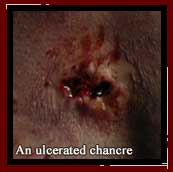
Based on comments, I'd say readers of this blog are pretty sophisticated; so at the risk of boring some, and before flying off in various directions on the topic, let me establish a few basic breast cancer bits.
First, the most basic of all: what is cancer? Most all of the tissues in your body have a cycle of life and death, as cells die off and are replaced by new ones. This is especially true of surface cells, like skin and those that form inner linings: glands, guts, various tubes. Different cells have particular rates of division and reproduction, timed exactly to replace those that die off: dandruff is proof of the process, if you need any. For a few reasons, a cell may mutate in such a way that it loses the control of the replication rate, dividing more rapidly than needed to replace its cousins. The cells formed in that division process have the same misinformation, and the process continues, producing a cluster of cells: a tumor. If that tumor grows slowly and stays where it started, we call it "benign." If it grows more rapidly, and especially if it develops the ability to invade through local barriers and into blood and lymph vessels, by which process it can spread elsewhere, we call it "malignant" -- cancer (or "carcinoma.") Cancer carries the name of its organ of origin, no matter where it ends up: breast cancer means cancer that started in the breast. If it spreads to the liver, it's still breast cancer, not liver cancer. In the breast, there are two main cell origins: the ducts through which milk flows (from which arises the most common form: ductal cancer), and the glands (lobules) that produce milk (from which arises lobular cancer.) Behavior of the two is slightly different, but the treatment is essentially the same (lobular may grow a little more slowly, but has a greater tendency to occur in both breasts.) There are a couple of rare types; and there's the whole issue of cancer in its most early -- and theoretically 100% curable -- form, ductal carcinoma in-situ. (DCIS -- an entire treatise in itself. Maybe, at some point...)
The goals of breast cancer treatment, from a surgeon's point of view, are two. The first is to eradicate the cancer from the breast, and the second is to get information about how far it might have spread from the breast, mainly by removing some regional lymph nodes for analysis. Many changes have occurred in the achievement of each of those goals.
If a breast has a cancer in it, there's a significant chance some cancer cells exist elsewhere within that breast. If the only treatment were to remove the cancerous lump, many women would in fact be cured; but at least thirty or forty percent would have recurrence. Since there's no way to determine with certainty when a woman might be in the first category, the entire breast must receive treatment. (I've seen many a frail and very elderly woman for whom I felt it best simply to remove the lump -- often in my office under local anesthesia -- perhaps adding hormone treatments (more later on that subject), and following along, expecting another of life's end-games to play out before the cancer ever would. But those are very individual cases.) As I said in the previous post, until around thirty years ago, breast treatment meant removal, usually by radical mastectomy. Over time that most radical operation was modified (known now as the "modified radical mastectomy"), still involving removing the entire breast but leaving enough skin to close the incision, and leaving the muscles on the chest wall. It's significantly less disfiguring and disabling, but still is complete removal of the breast.
The other option is to remove the cancerous lump with a rim of healthy tissue around it, and to treat the remaining breast with radiation. As both surgical and radiation techniques have evolved, the cosmetic results are usually excellent (as opposed to my description in the previous post), and the local control (meaning absence of local recurrence) approaches (but does not quite match) that of mastectomy. There are a few situations that mitigate toward choosing mastectomy (multiple or very large tumors, mainly) but for most women, how the breast is treated is a matter of personal choice. Some readers might be surprised to learn that many women prefer breast removal to breast preservation. And like many other emotionally charged issues, the choice has become complicated by factors beyond such simple matters as cure and personal comfort.
"If your surgeon tells you you need to have your breast removed, find another surgeon," says the woman who's the subject of my previous post. Said, more properly. No longer says. Took her a little longer to get it. What's wrong with that recommendation is that, first, there are a couple of situations for which there really is no option but removal of the breast. I'll get to them eventually. Second, some women simply don't want the stress of worrying about what's going on in that remaining breast. Many women have had lots of lumps and lots of biopsies before developing cancer. Surgery and radiation can cause lumps and mammographic abnormalities which change over time and which may require biopsies to be sure what's going on. Some women simply don't care that much about that aspect of their appearance (I've always thought, paradoxically, that that was the most liberated view of all -- the opposite of the "women's movement" argument). Or they elect peace of mind over concern about some aspect of appearance. It can be a strange thing: when a woman chooses mastectomy, there's an assumption on the part of some folks that either her surgeon is an idiot or a pig, or that she's in some way falling short of her obligations to.... to whom, exactly? It complicates things, sometimes.
It's another paradox: much as it's a step forward in healthcare that people are taking more and more charge of their medical decisions (the days of the god-like doc telling a patient what will happen and expecting no questions are happily and long gone) there are times when choice ain't all it's cracked up to be: when faced with a deadly disease, many people want someone to take charge and tell them what to do. It's a copout, in my opinion, when a doc basically tells a person, well we could do A, B, C, or D. Let me know when you make up your mind.... I think it's a doc's obligation fully to inform, lay out the pros and cons of the various options, but also to state an opinion of which is the better choice, if that doc has such an opinion. For breast cancer, I'd get asked for my opinion very often; and in most cases I'd honestly say I thought the options were equal and that it really came down to which the person felt, at her core, would make her most comfortable. When there were specific reasons why I thought mastectomy was safer, I'd say so. And when I thought there were reasons why lumpectomy and radiation might produce a less than satisfactory cosmetic result, I'd say so; likewise, when I thought post treatment surveillance would be an issue. I ended up doing a fair number of mastectomies: whether that reflected an unconscious bias on my part, I can't say with certainty. Twenty years ago, when the data were young and the radiation treatments were less reproducible, I'd have to say yes. In recent times, I don't think so. I know I had no problem with women choosing preservation in the vast majority of cases. But if it were me, or my wife -- and as a male person I happen to be among those that deeply loves the female form, visually and tactilely -- I'd start with the idea mastectomy (for its lowest chance of local recurrence, for avoiding the hassles of radiation, for simplicity of followup) and work back from there. For a small tumor with favorable parameters (guess that's another thing we need to get around to, eventually) it would probably seem like overkill. That's just for the record, since this is a personal blog. It in no way means women who choose otherwise are making a poor choice; not one bit, whatsoever. And my wife would make up her own damn mind, thank you very much.
We still haven't talked about lymph node testing. That's next, among other things.



















